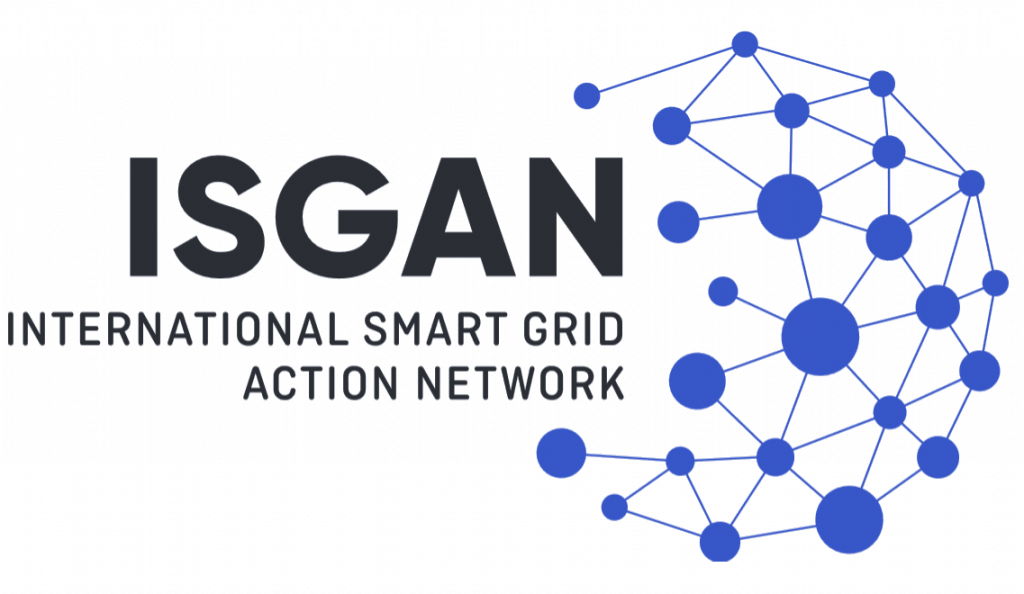Exploring the interaction between power system stakeholders: Insights from Pilot Projects – Discussion Paper
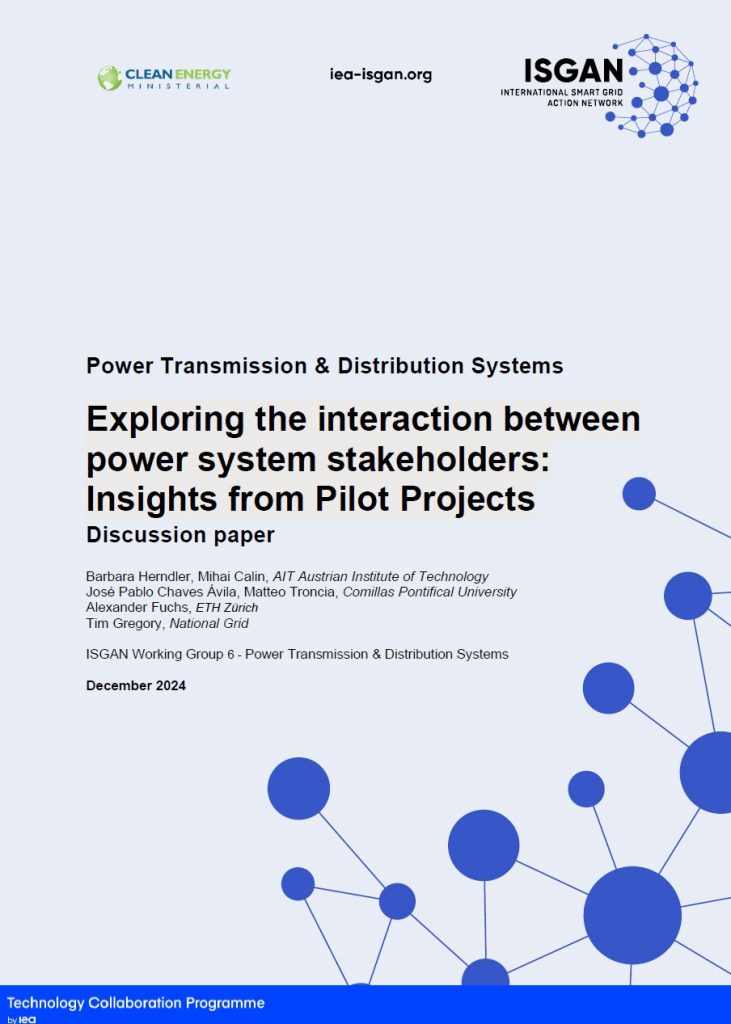
This discussion paper provides insights from global pilot projects on flexibility for coordinated capacity management by TSOs and DSOs. The discussion paper examines key challenges and lessons learned across technical, ICT, market, economic, and regulatory aspects. The study consolidates information gathered from literature reviews, stakeholder surveys, workshops, and expert interviews to assess best practices and trends.
Active System Management by DSOs – Discussion Paper
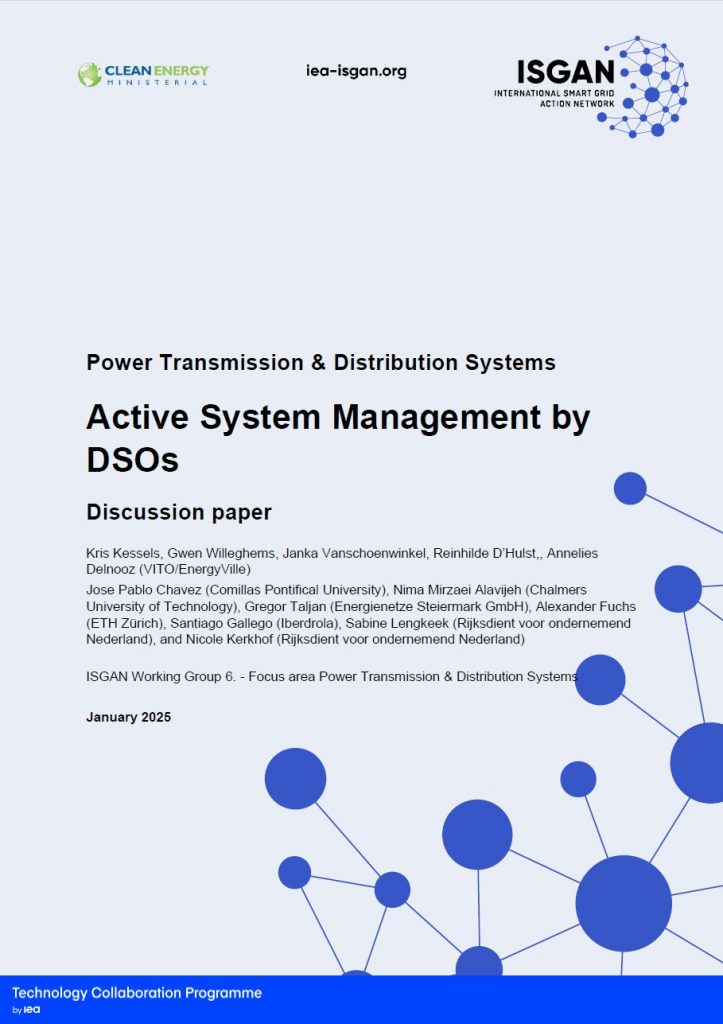
Discussion paper that provide insights into how DSOs can leverage active system management to cost-efficiently and securely manage their grids. These insights stem from a series of interactive workshops held with members of the ISGAN WG6 and other interested parties.
Exploring the interaction between power system stakeholders: Insights from Pilot Projects
The electricity system is transforming due to renewable energy integration, decentralized generation, and digitalization. The traditional unidirectional grid is evolving into a dynamic, bidirectional system with distributed energy resources (DERs) like solar, wind, EVs, and storage. This shift, along with electrification and decarbonization goals, requires enhanced coordination to maintain reliability and efficiency.
Network Planning and Decision-Making under Uncertainty – Discussion Paper and Policy Brief
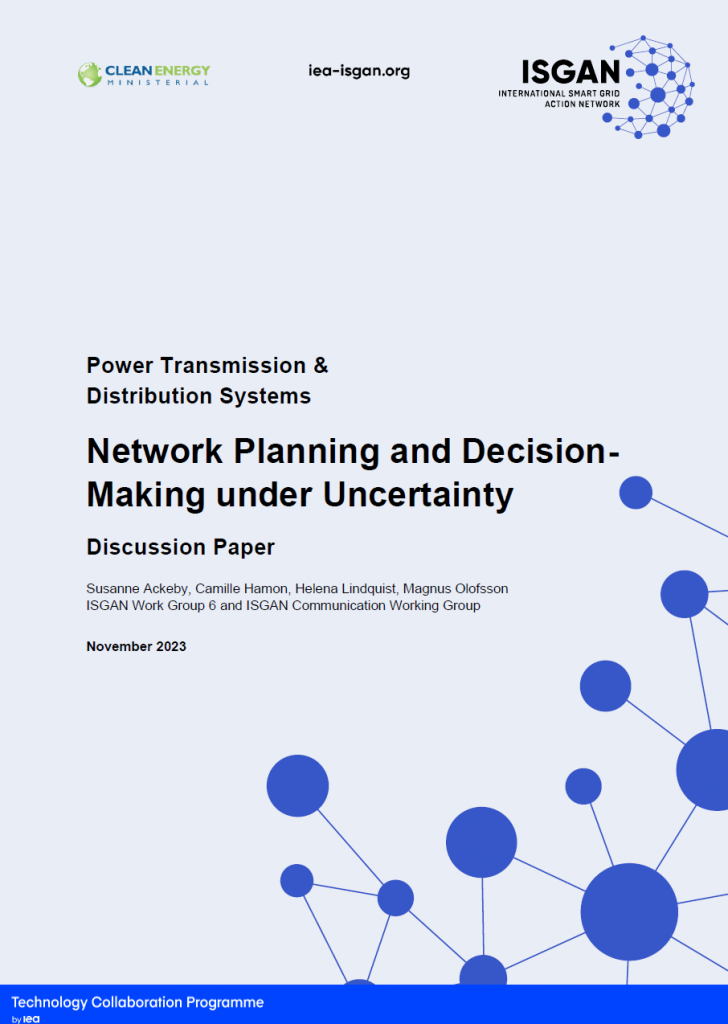
Recognizing the pivotal role of electrical grids in achieving net-zero emissions and addressing a wide spectrum of ecological, social, and economic aspects of sustainable development, ISGAN Working Group 6 joined forces with the ISGAN Communication Working Group, to spearhead a collaborative knowledge sharing project (KSP) on Network Planning and Decision-Making under Uncertainty.
How can Aggregators Improve the TSO-DSO-Customer Coordination in Digitalised Power Systems? – Discussion Paper and Policy Brief
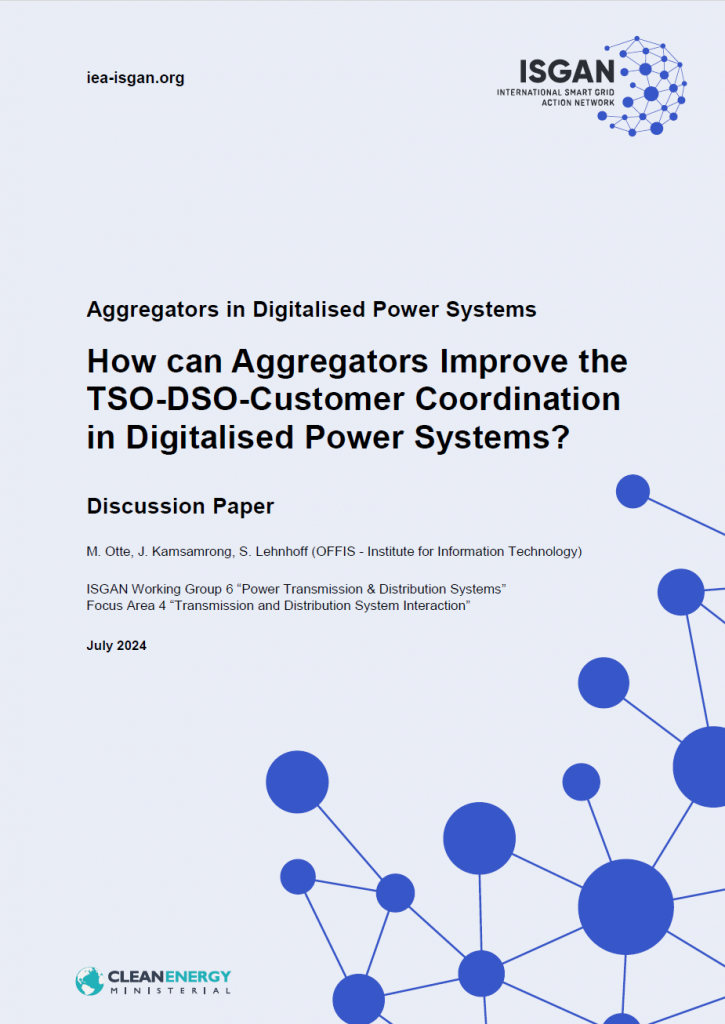
Utilizing untapped Distributed Energy Resources (DERs) potential from customers in the distribution grid necessitates TSO-DSO-Customer coordination. Customers still face challenges how to manage and market their flexibility in the energy market and how they can become active customers. Aggregators can facilitate these flexibilities as an intermediary by providing services to different power systems participants.
Summary of regulatory activities and conclusions of the FlexPlan project
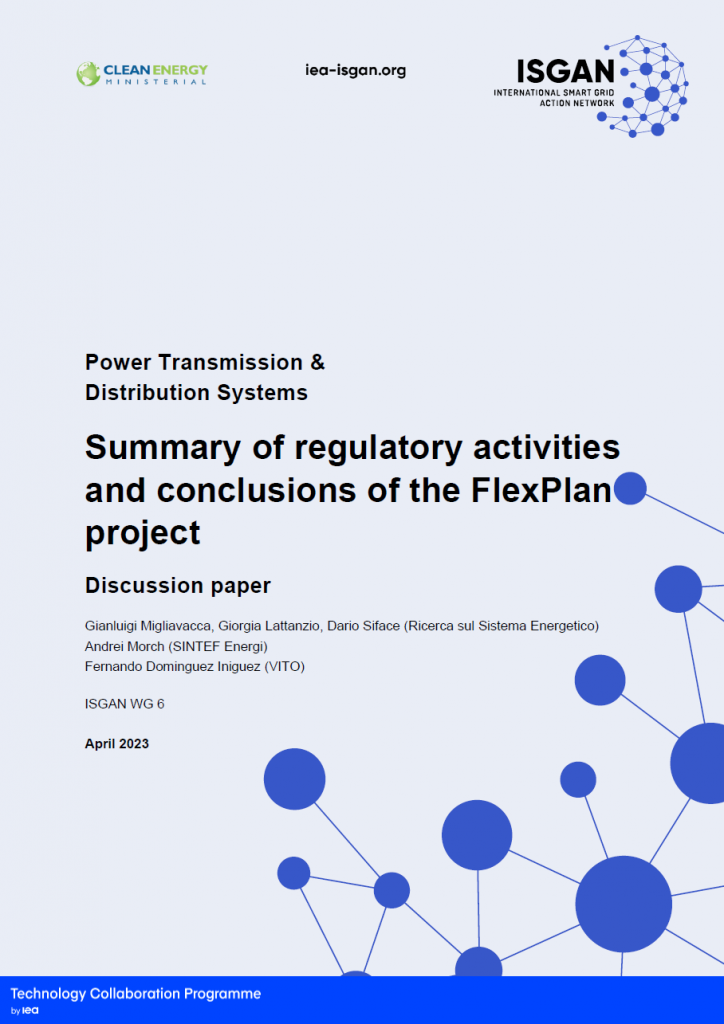
The FlexPlan Horizon 2020 project aimed at establishing a new grid-planning methodology which considers the opportunity to introduce new storage and flexibility resources in electricity transmission and distribution grids as an alternative to building new grid elements, in accordance with the intentions of the Clean Energy for all Europeans regulatory package of the European Commission.
Energy communities’ impact on grids – Energy community embedment increasing grid flexibility and flourishing electricity markets
The new role of energy communities represents both an opportunity and a challenge for DSOs and, consequently, for TSOs. They can unlock active consumers’ flexibility potential and more effectively integrate distributed renewable resources and new technologies, such as rooftop photovoltaic facilities, electric vehicles or batteries, etc. In contrast, energy communities must fulfil all related duties and responsibilities when acting as suppliers, active customers or any other existing market role. They must act on equal terms with other market players.
Flexibility for Resilience – Policy Message
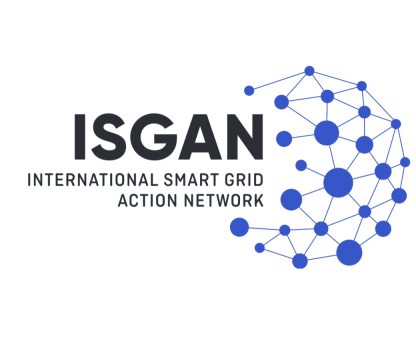
Power system infrastructure is becoming more digitally connected to ensure safer, more efficient, and decarbonized future. The challenge is that this infrastructure is becoming increasingly vulnerable the more connected it becomes. As geopolitical tensions and security of energy supply shape power system this decade, energy professionals are ready to offer different solutions to keep the lights on towards a reliable and resilient future.
Flexibility harvesting and its impact on stakeholders interaction – final report
Globally, the energy sector is continuously striving towards the most reliable, cost- effective environmentally friendly production, transmission and distribution of energy. Recent regulatory frameworks have prompted the urgent strive to become carbon neutral and with an increase in the transition to sustainable energy resources.
Flexibility harvesting and its impact on stakeholder interaction – Explained
Within the global context, the electrical energy system is transitioning in the way that electricity is generated, transmitted and distributed. Due to these changes, system operators are faced with various challenges (technical, ICT, regulatory and economic) to accommodate new technologies due to the drive toward modern power systems. However, these changes have also allowed for the increased opportunity for system development and the inclusion of new market players. Flexibility will provide network operators (together with other stakeholders such as prosumers, aggregators, etc.) with the possibility to increase the stability of the electrical system and ensure a safe, secure and reliable supply. Stakeholder interaction is key to facilitate and enable the integration and utilization of flexibility in future power systems.

